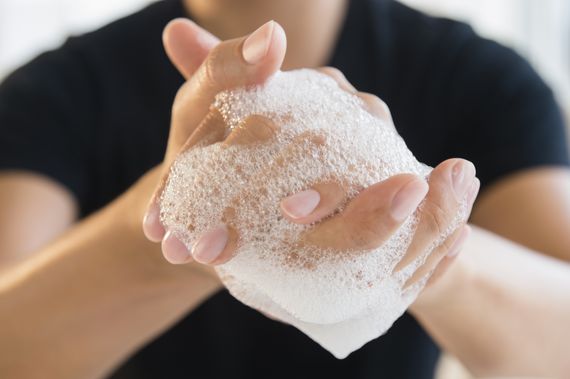-
Tips for becoming a good boxer - November 6, 2020
-
7 expert tips for making your hens night a memorable one - November 6, 2020
-
5 reasons to host your Christmas party on a cruise boat - November 6, 2020
-
What to do when you’re charged with a crime - November 6, 2020
-
Should you get one or multiple dogs? Here’s all you need to know - November 3, 2020
-
A Guide: How to Build Your Very Own Magic Mirror - February 14, 2019
-
Our Top Inspirational Baseball Stars - November 24, 2018
-
Five Tech Tools That Will Help You Turn Your Blog into a Business - November 24, 2018
-
How to Indulge on Vacation without Expanding Your Waist - November 9, 2018
-
5 Strategies for Businesses to Appeal to Today’s Increasingly Mobile-Crazed Customers - November 9, 2018
FDA Bans Chemicals Used In Antibacterial Soaps
Antibacterial soaps were banned from the United States market on Friday in a final ruling by the Food and Drug Administration, which said that manufacturers had failed to prove the soaps were safe or more effective than normal products.
Advertisement
The Food and Drug Administration’s Dr. Janet Woodcock says there’s no scientific evidence the products are any better than plain soap and water.
It’s a major victory for many people who believe antibacterial ingredients do more harm than good.
Banning antibacterial soaps were first proposed by the FDA in 2013 when the agency asked manufacturers to submit data proving their effectiveness.
How do you tell if a product is antibacterial?
The FDA’s decision does not affect alcohol-based hand sanitizers, wipes or antiseptic products.
Manufacturers have one year to comply with the new rule by removing their products from the market or reformulating them without any of the 19 ingredients, the FDA said. The FDA said there is not enough proof that any of the ingredients are safe in the long-term or are effective enough to live up to the antibacterial claim.
Due to the recent ruling, the FDA recommends that consumers go on washing their hands with just plain soap and water to avoid picking up germs and getting sick. Triclosan has also been added to many clothing, kitchenware, furniture, and toy products in an effort to prevent bacterial contamination. The agency says manufacturers have not shown that these products are any more effective than plain soap and water in preventing illness or stopping the spread of certain infection. On the other hand, a 2015 study published in the Journal of Antimicrobial Chemotherapy demonstrated that antibacterial soaps are no better at killing bacteria than old-fashioned soap.
For three other ingredients that aren’t used as often – benzalkonium chloride, benzethonium chloride and chloroxylenol – the FDA is providing an additional year for manufactures to supply data.
Triclosan is a common ingredient in antibacterial liquid soaps and an environmental contaminant that is incompletely eliminated in water treatment plants.
‘Some manufacturers have already started removing these ingredients from their products’.
Advertisement
Additionally, the FDA and other health organizations are anxious that widespread use of antibacterial products will contribute to the growing problem of antibiotic-resistant bacteria.





























